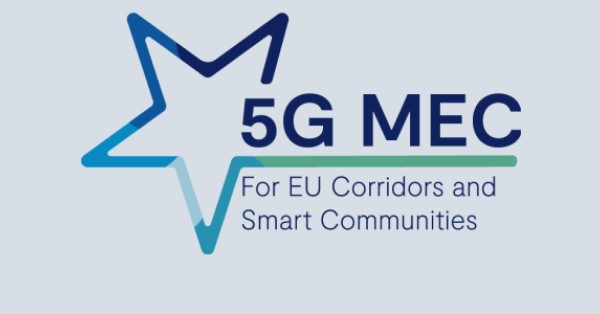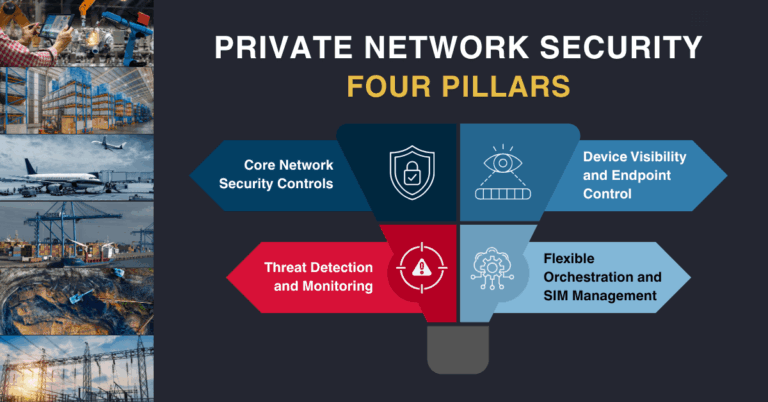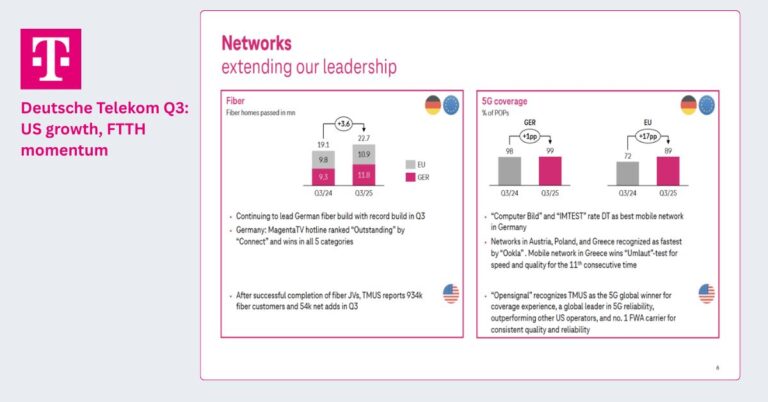Detecon and Monotch to Pioneer Pan-European Drive Towards 5G and Edge Computing Integration
- Project to boost 5G corridor and smart community deployments
- Seamless integration of roads, railroads, and communities
- Hub for support and harmonization of current European 5G, edge, and cloud initiatives
Wagenberg/Cologne, February 13: The digital sector of the Connecting Europe Facility (CEF Digital) — the European Commission’s funding instrument for infrastructure projects fostering connectivity among EU member states — has awarded a coordination and support action (CSA) jointly to Monotch, a prominent player on the international market for cooperative intelligent transport systems (C-ITS), and Detecon, the German management and technology consultancy. The CSA project, provisionally titled 5GMEC4EU, aims to support and enhance 5G edge and distributed cloud integration for European 5G corridors and 5G smart communities. The offering features a comprehensive package encompassing information, outreach, engagement, advisory services, and other aspects.
The 5GMEC4EU project seeks to strengthen the European rollout of 5G systems and to push the adoption of multi-access edge computing (MEC) facilities along major transportation routes and within local communities. Its approach — the establishment of a stakeholder network from mobility and smart community sectors — merges passive network components, a federated cloud, edge infrastructures, and related operational amenities. The primary objective is the assurance of service continuity and the interoperability of 5G across EU transportation grids, enhancing road safety standards and enabling the digitalization of local communities.
The work incorporates a broad scope of various activities ranging from research and requirements assessment to proof-of-concept testing and piloting to outreach, engagement, and advisory services. The project partners Monotch and Detecon will also be collaborating closely with selected CEF-funded 5G deployment projects in harmonizing European federated cloud infrastructure efforts. Within the framework of the cooperation, Monotch will be responsible for developing mobility use cases for 5G corridors and 5G smart communities while Detecon will be in charge of project coordination, outreach and community management, and the facilitation of the integration of these use cases into the European MEC infrastructure.
“This project will have a significant impact on our endeavors to establish unified pan-European 5G and edge cloud services,” says Dimitri Jungblut, project coordinator for the 5GMEC4EU activities at Detecon. “In seamlessly integrating roads, railroads, and communities, we are creating a truly unified, inclusive, and advanced European network for the next generation.” Paul Potters, director smart mobility and founder of Monotch, adds: “Our platform provides the structure that mobility services require for operation across geographical borders — whether urban, regional, or national. Bi-directional and real-time mobility data exchange in conjunction with 5G edge solutions heightens operational reliability even further.”
The project has been budgeted at slightly less than €2 million for a term of 30 months. Achievement of the first milestone — an initial in-depth analysis and evaluation of MEC deployment in the EU — is expected in a mere six months. Later phases will see the initiation of the first mobility use cases and the development and conduct of best practices for their integration into existing edge infrastructures.
Detecon
Detecon is the leading, global management and technology consultancy that has combined classic management consulting with high technology expertise for over 40 years. The focus of its services is in the area of digital transformation: Detecon helps companies from all sectors of the economy to adapt their business models and operational processes to the competitive conditions and customer requirements of the digitalized, globalized economy using the latest communication and information technology. Detecon’s know-how combines knowledge from successfully completed management and ICT consulting projects in over 160 countries.
Further information at: www.detecon.com
Monotch
Founded in 2015, Monotch is a fast-growing international company in the smart mobility market. With direct support from its (partner) offices in the Netherlands, Germany, the United States, Belgium, Finland, Sweden, and Great Britain, the company internationally deploys the Traffic Live Exchange Platform (TLEX®), the most progressive smart mobility platform. This powerful platform is the proven foundation for connected mobility and digital infrastructure that lets traffic talk. With national implementations of this C-ITS (Cooperative Intelligent Transport System), such as in the Netherlands and other European countries, Monotch is paving the way for a smarter mobility future.
Further information at: www.monotch.com









































